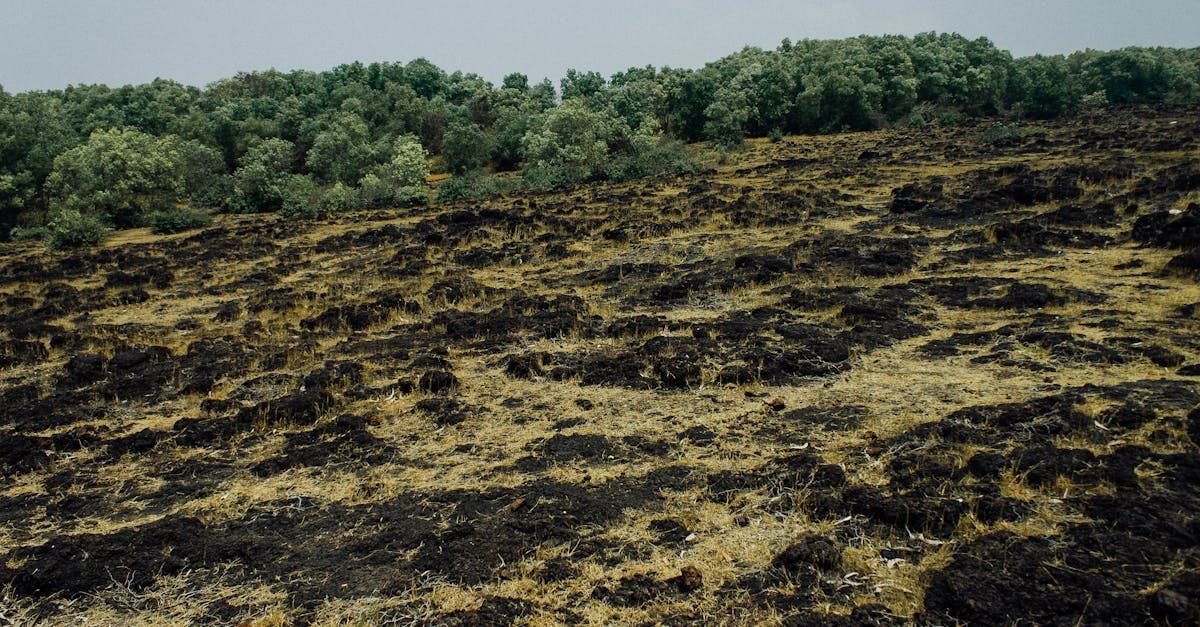Use of Toxic "Sludge" as Fertilizer a Growing Concern
Sludge, also known as biosolids, is a by-product of wastewater treatment processes. It is a semi-solid material, rich in organic matter and nutrients, making it a potentially valuable resource for agriculture. However, the use of sludge as fertilizer also raises serious health and environmental concerns.
The primary advantage of using sludge as fertilizer lies in its nutrient profile. It contains nitrogen and phosphorus, two essential nutrients for plant growth. Additionally, the high organic matter content can improve the structure of the soil, enhancing its capacity to hold water and nutrients. This is particularly beneficial in regions with degraded or nutrient-poor soils, where sludge can provide a cheap and readily available source of organic matter and nutrients. It's a way of returning to the soil what has been taken away by intensive farming or poor soil management.
Beyond the nutrient content, sludge also contains a wide range of trace elements, such as zinc, copper, and manganese, which are essential for plant growth in trace amounts. However, the concentrations of these elements in sludge can vary widely, depending on the source of the wastewater. Industrial wastewater, for example, can contain high levels of heavy metals, which can be toxic to plants and can accumulate in the soil.
This leads us to the crux of the problem: the potentially harmful substances that can be found in sludge. Sludge can contain a wide array of contaminants, including heavy metals, persistent organic pollutants, and pathogens. The heavy metals, such as lead, cadmium, and mercury, can be taken up by plants and enter the food chain, posing a risk to human health. Additionally, these heavy metals can accumulate in the soil, degrading its quality over time and potentially contaminating groundwater.
Persistent organic pollutants (POPs) in sludge include compounds like polychlorinated biphenyls (PCBs), dioxins, and polyaromatic hydrocarbons (PAHs). These substances are of particular concern because they are resistant to degradation and can persist in the environment for many years. Exposure to these compounds has been linked to a range of health problems, including cancer, endocrine disruption, and neurodevelopmental disorders.
Pathogens, including bacteria, viruses, and parasites, can also be present in sludge. If not properly treated, these pathogens can pose a risk to human health, particularly for those involved in the application of the sludge or those consuming crops grown in sludge-amended soils.
The regulatory frameworks governing the use of sludge as a fertilizer vary widely around the world. Some countries have stringent regulations in place, setting maximum allowable concentrations for various contaminants. However, even with these regulations, there is a risk of harm. Regulations are often based on assumptions about exposure levels and the toxicity of individual substances, which may not accurately reflect the reality in the field. There is also the problem of substances that are not regulated, either because they are not known to be harmful or because they are difficult to measure.
Moreover, the nature of sludge itself – a complex mixture of various substances – complicates the assessment of its safety. Different substances can interact in the soil, potentially enhancing or reducing their toxicity. Furthermore, the effects of long-term exposure to low concentrations of these substances are not well understood.
On the environmental front, the use of sludge as fertilizer can also lead to ecological harm. The accumulation of heavy metals in soils can affect soil organisms, disrupting ecological processes like nutrient cycling and decomposition. POPs can be harmful to wildlife, particularly top predators, due to their tendency to bioaccumulate and biomagnify in food chains. The over-application of sludge can also lead to nutrient pollution, causing problems like eutrophication in nearby water bodies.
While the use of sludge as a fertilizer can offer some benefits, the potential risks to human health and the environment should not be overlooked. Proper treatment of the sludge, strict regulatory oversight, and careful management of its application are crucial to minimize these risks. Additionally, ongoing research is needed to improve our understanding of the potential harm associated with sludge use and to develop safer, more sustainable ways to manage this resource.
Developments Concerning the Use of Sludge Fertilizer in Alabama
The use of toxic “sludge” as fertilizer has become an issue across the country, prompting response from environmental groups in Alabama.
In 2022, the Alabama Environmental Management Commission, which oversees the Alabama Department of Environmental Management (ADEM), voted to approve stricter rules regarding the practice of using sludge as fertilizer, going beyond the existing rules that prohibited sludge dumping unless there was an agricultural benefit. The new rules include certain requirements for how food processing waste is spread and stored, as well as rules applied to mine lands and agricultural fields. There were also new record-keeping and reporting requirements.
In response to the practice in Alabama, the Alabama Waste Sludge Awareness group was formed. The group has established a Facebook page to spread awareness of the issues that result from using sludge, and to push for abolishment of the practice altogether.
Several incidents around the U.S. contributed to the changes in Alabama. In 2019, sludge from a poultry processing plant was spread over fields, causing annoyance and alarm for surrounding landowners. While the overwhelming smells from the organic material were an annoyance to nearby residents, the growing fear was that the sludge could possibly contain toxic chemical solvents. This not only could impact human health, but was shown in an ADEM report to destroy surrounding vegetation.
Similar practices have sparked controversy in South Carolina, where sludge has been used since the early 1990s. It was recently reported that more than 3,500 farm fields have been approved to receive sludge.
Additionally, in January 2022,
Michigan cattle were reported to contain unsafe levels of toxic chemicals. The elevated levels were traced back to the sludge fertilizers found throughout various waterways in the state.
MORE ALABAMA INJURY LAW NEWS






OUR LAW FIRM IS HERE TO HELP
Contact our Birmingham, Alabama Injury Lawyers Today for Legal Help
Have you or a family member recently been injured in an accident in Alabama? Contact Snable Stevenson & Silva for immediate legal assistance and advice. You may be able to pursue compensation for your medical bills, lost wages, and other expenses. Our qualified Alabama injury lawyers can help you fight to secure a full and fair award.
We offer a free case evaluation and consultation. Contact our law office in Birmingham, Alabama to schedule yours today. If you can’t come to us, we can arrange a time to visit you. Consultations can be arranged at the hospital, your home, or even your place of business. There’s a limited amount of time to act, so give us a call to get started today.
FREE CASE EVALUATION
GET STARTED
Thank you for submitting a request.
Our team will follow up with you as soon as possible.
There was an error sending your message.
Please try again later.
(800) 266-0877 • attorneys@snablestevenson.com
(205) 582-8000 • 2737 Highland Ave South, Birmingham, AL 35205
(901) 474-2900 • 1545 Union Ave, Memphis, TN 38104
This website is an advertisement for legal services. No representation is made that the quality of the legal services to be performed is greater than the quality of legal services performed by other lawyers. Use of this website signifies your agreement to the Terms of Use, Privacy Policy, and Form Disclaimer.
Snable Stevenson & Silva L.L.C.

